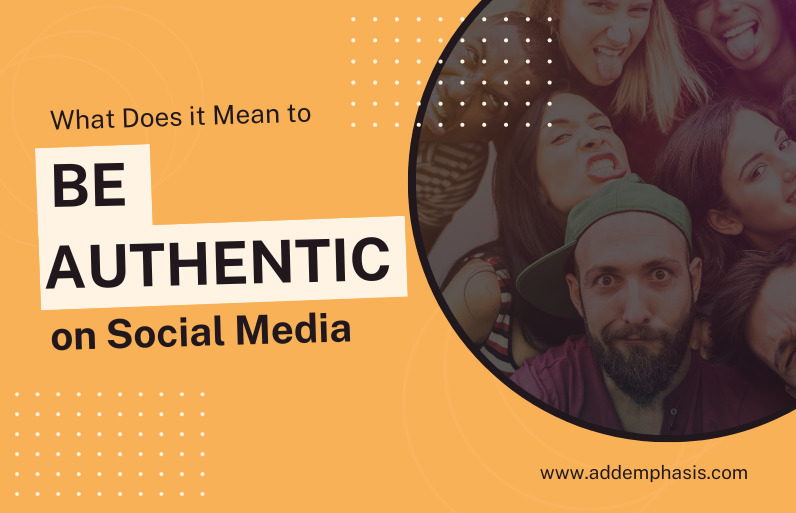
What Does it Mean to be Authentic on Social Media
Content and social media experts have been repeating the mantra “be authentic on social media” over and over. But what does that actually mean?
Simply put, it means communicating in a way that truly represents your brand. The mistake brands often make is thinking this means broadcasting facts about their products and services and leaving it at that. And while this can be part of your social media strategy, it should only be a minor part. What you want to aim to do is build a community of individuals who identify with your brand and brand values.
Being authentic means going beyond surface-level facts and information and diving deeper into thoughts, opinions, and emotions. The struggle many people have with doing this for business is giving these human characteristics to something that isn’t living. But if you think about your brand as a collection of the values of the individuals that are building and feeding the brand every day, you can determine the personality that you’d like to portray, and then use that to authentically communicate with your audience on social media.
We recommend looking not at other organizations and competitors for inspiration, but rather at popular personalities and large influencers. If you look at the TikTok presence of people like Elyse Myers, Emily Zugay, and Pinky Patel, you will find three individuals who didn’t set out expecting to become viral sensations, but who, in a relatively short period of time, ended up with millions of followers forming strong communities that support them. The key to building community is in their authentic nature.
You can do this for your business as well, following these steps, each one built with the information from the previous steps in mind.
Identify your ideal audience
Who is the most likely to be a customer?
- Age Range
- Income
- Location
- Hobbies/Interests
If you have trouble identifying this information, think about the people who have already purchased from you. If you have Google Analytics on your website, you can use the demographic information available there to help you. You can also find some of this information in the analytics of your social media accounts. And you can ask questions of your customers to find the things you have in common, what they have in common with one another, and why they chose your brand.
Define your brand values
Answer the following questions:
What standards will the brand follow when making important decisions?
Where do you stand on topics like diversity and inclusion? Human rights? Environmental issues?
Do the values you have align with those of your target audience? If the answer to this question is “no,” you will either have to revisit your target audience or decide how you will navigate answering questions related to your values when they don’t match those of your audience. The second option can be problematic as you very likely will be unable to foster a connection when core values differ.
Build a personality profile
If your brand was a person, what kind of personality traits would it have? Is it humorous? Unhinged? Factual/Intelligent? Nerdy? Chill?
Ask yourself what celebrity or public figure it would most be like. Maybe it is confident like Oprah but a bit dorky like Phil Dunphy.
Once you have determined the mix of personalities that best represent your brand, use the voice of that character when developing content for social media. Post in that voice. Have your social media team learn the voice so everyone can represent the company in the same way when answering customer questions. When you’re company’s personality shines, your audience will be attracted and endeared, and they’ll form a true community.
Having trouble? Add Emphasis can help! Email melanie@addemphasis.com to set up your free 10 minute consultation.


